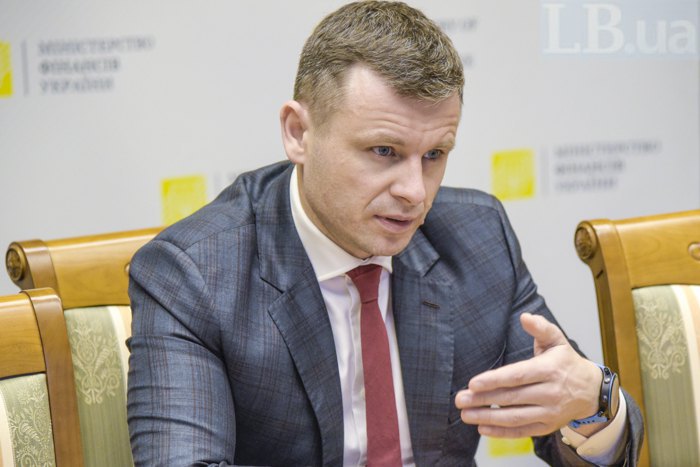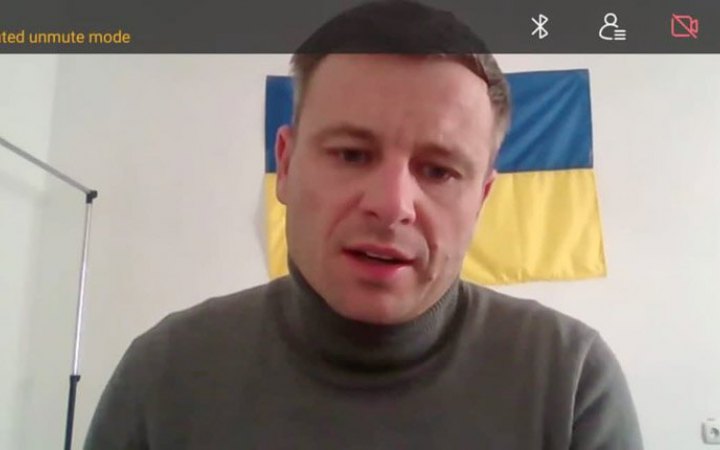"The customs duty and taxes have decreased significantly - we are collecting only about 15-20% of what was planned before the war"
Sonya Koshkina: Let's start with budget execution. How is it going? What is the level of revenues from taxes and fees?
Serhiy Marchenko: Now we have a wartime budget and we are implementing the mechanisms we prepared for this. There is now a law that allows us to quickly redistribute funds and strengthen those areas that we consider necessary by the decision of the Cabinet of Ministers without involving the parliament.
The needs of the military and defence are a priority.
I will say a few words about the budget execution. This month, the Tax Service will overfill the previous plan outlined before the war. The reason for it is that we were able to make a decision that banks, primarily domestic, pay the dividends. In particular, PrivatBank paid 28bn hryvnyas in advance, although they were supposed to do it in May-June. Also, large corporations, primarily private, could make advance payments to the budget. Therefore, the tax service has already collected more than 70bn hryvnyas.
As for the Customs Service, the situation here is indicative of what is happening and how the war affects our economy and our budget. The decrease is significant - we are collecting only about 15-20% of what was planned before the war. We plan to receive about 7bn hryvnyas in revenues from the customs by the end of the month. The explanation is simple: all the eastern and northern customs are not working, neither do Kyiv and Odesa customs, because the ports are blocked, and there is no customs clearance of goods.
Currently, only the western border is open. It is working in the enhanced mode - new border crossing points open. And there are many questions about customs clearance and simplification of customs procedures.
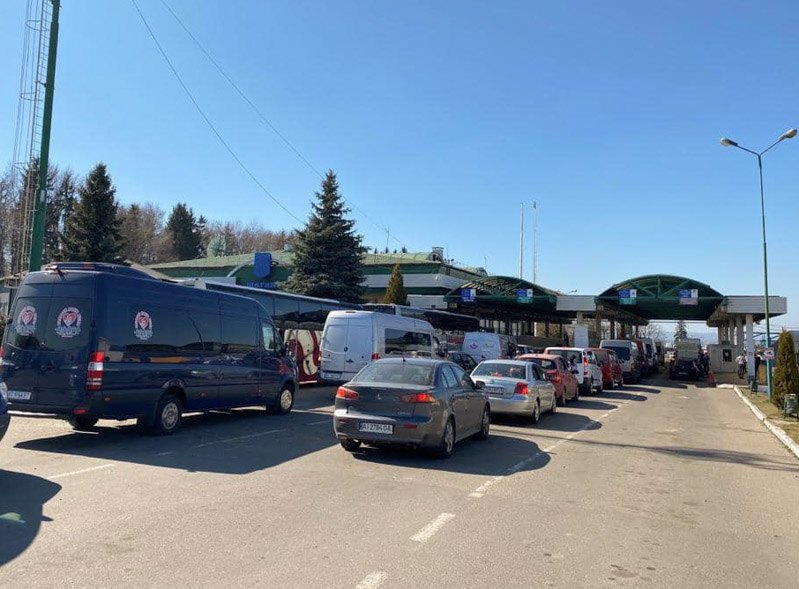
S.K.: What is the accurate forecast of revenues in six months? Because it is impossible to pay in advance constantly.
S.M.: We have forecasts for March, April, and May. There is a clear understanding of needs: pensions, social benefits, education and medicine and, of course, security and defence spending. We have approximate plans and a sense of how much we need to finance, given the significant setback from the customs and in case of a tax shortfall. Our critical efforts are now to seek credit and grant aid from partners.
S.K.: Let's talk about this in more detail later. In the meantime, let's discuss the losses. According to your estimates, about 30% of the economy is not working now. Are these figures relevant, and how quickly can we restart the process?
S.M.: These are, of course, only preliminary calculations. We will know more when we get the results of March when there will be an understanding of the level of tax payments by business entities.
Prior to that, we analyzed the dynamics of the payment of the unified social contribution and individual income tax and made assumptions about losses at the level of 30-50%.
I’d want to be more optimistic, but we'll have to see.
S.K.: Which industries have suffered the most?
S.M.: First of all, the territories where active hostilities are taking place. Most businesses are frozen, ceased operations or moved to other, safer sites in Ukraine.
As for industries, the agricultural industry did. Our pivotal issue is ensuring the sowing campaign.
As for metallurgy, the Ministry of Infrastructure and we are working on the issues of the destroyed or lost communications and blocked ports to be able to export via the western border. However, it takes some time as it is challenging to change logistics so radically.

SK: But you said you were preparing…
S.M.: We were primarily preparing at the level of budget risks and preparation of legislative changes. However, few could have predicted that russia would attack along the entire borderline with russia and Belarus.
"We are negotiating support for up to 6bn euros"
S.K.: Let's talk about the international support we can count on. Can you share the details - what it is like now, what it should be like, in your opinion?
S.M.: Currently, it is a priority area for the President, the Government and the Ministry of Finance. Today, we are negotiating support for up to 6bn euros. It includes credit and grant aids.
We have already started cooperation with the IMF through the Rapid Financing Instrument. We received 1.4bn dollars that are already in treasury accounts. We also have a 1.2bn euros macro-financial assistance program from the European Union. Ukraine has already received 600m euros in two tranches of 300 million euros under the program. We are consulting with the European Commission on the subsequent programs and tranches. We received financial aid from the World Bank under the Development Policy Loan (DPL) for 312m euros.
Currently, the World Bank and partner countries are creating a trust fund for Ukraine. Sweden, the Netherlands and Austria have already joined it. Sweden, in particular, is ready to provide 50m dollars as guarantees, the Netherlands - 89m dollars, Austria - 10m dollars.
We are negotiating with the Japanese government. The initial amount of loans is 100m dollars. There is a possibility to increase it, and we are actively working on it.
The European Investment Bank has adjusted its budget support projects to 668m euros. We have already received 400 million euros which are in our budget accounts.
We are talking with Germany about two loan programs for 150m dollars. We have signed a memorandum for the first one, and we are waiting for the funds to arrive.
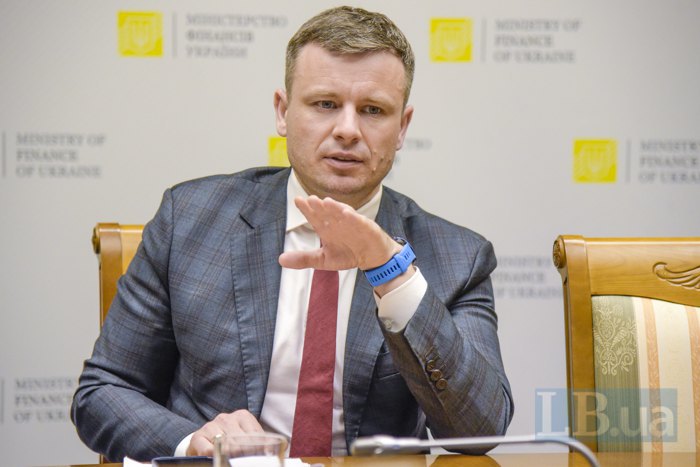
As for France, there are ongoing negotiations on a loan of 300m euros.
Canada has announced a 500m Canadian dollar loan program. The United Kingdom has a 500m dollar loan program for us.
This is what we see today in terms of loans.
As for the grants, the Italian government stands out here. In the first days of the war, they gave us a grant of 10m euros. We also expect grant aid from Britain, Denmark, Latvia, Lithuania, Iceland and the E.U. The total amount of these grants is about 360m euros.
S.K.: Let's clarify how much of this money has already gone into the budget?
S.M.: More than 3bn dollars. That is almost half of the funds we are negotiating.
S.K.: Is it that necessary resource for us when half of the economy is not working?
S.M. It is one of the possible options. The other one is our military bonds.
We have already held four auctions and raised 26bn hryvnyas for their sale. We have the opportunity to work not only with domestic investors but also with non-residents. Now, we are trying to expand the possibilities of selling them to non-residents.
It is one of the priority ways.
S.K.: What about the funds for recovery of the economy after the war? What amounts will we need in general?
S.M.: As for the amount for recovery, we will need hundreds of billions of dollars, no less.
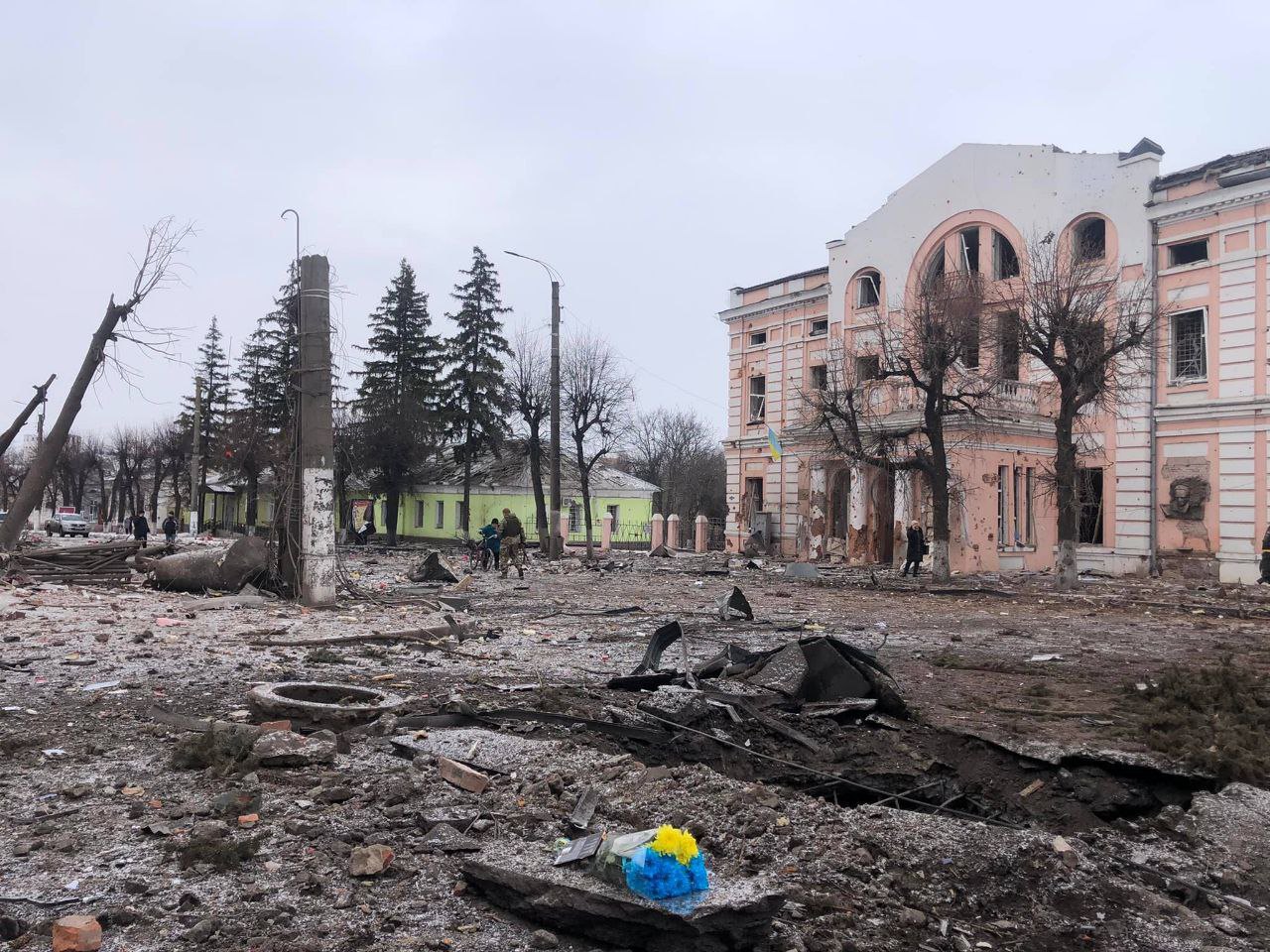
I can't tell you how we will collect these funds since the negotiations are underway. Many countries have declared the need to develop a "Marshall Plan" (similar to the same name program of assistance to Europe after World War II - LB.ua) for Ukraine. Germany, Poland, Britain, the United States and Canada have already mentioned that.
First, the plan, then the funding question.
S.K. Regarding loans, what are the current terms for these loans?
S.M. For the IMF funds - 15 years at 0,887% per annum, which is minimal.
"We want to be responsible for external debts and do not consider restructuring them"
S.K.: What about our existing external debts and payments on them?
S.M.: We want to be responsible for them and do not consider their restructuring. I will explain why. Following the payments schedule on our foreign debt is not problematic this year, so we have every opportunity to repay it even in wartime.
For example, debt payments in March amounted to 15-16m dollars. In April, 84m dollars is planned. These amounts are financially feasible for us.
And, since we still need to raise funds, it is vital for us to service them promptly.
By doing so, we demonstrate that we are reliable partners under any circumstances.
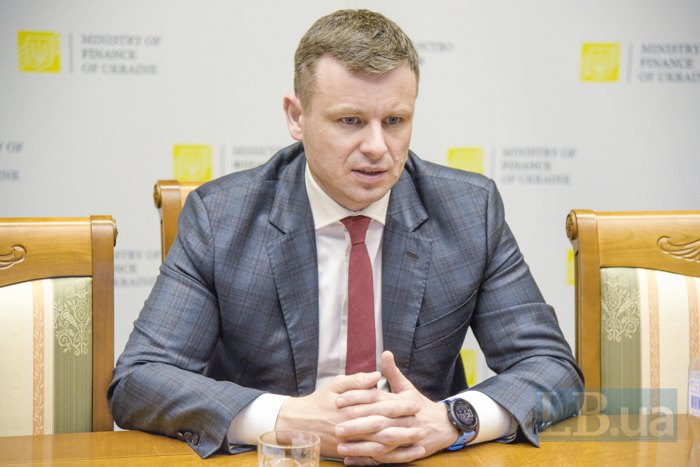
S.K.: But the head of the parliament's profile committee, Danylo Hetmantsev, says that although Ukraine does not need to write off debts, it counts on restructuring…
S.M.: At this stage, we are not talking about restructuring.
S.K.: Let's talk about sowing. It is under threat.
S.M.: Regarding the decisions that have already been made. Our "brand" program "5-7-9%" (State program "Affordable loans 5-7-9%" - LB.ua). Now we focus the funds of this program on supporting the sowing campaign. Farmers are taking loans at 0%. The maximum amount under the program has been increased to 60m dollars. We also have a program of portfolio guarantees that cover the banks' risks in terms of agricultural loans. Now we are increasing this program. We are also negotiating with large agricultural holdings, which also need liquidity, and are looking for mechanisms to create conditions to guarantee their loans, at least part.
S.K.: And who, apart from farmers, can claim "5-7-9%"?
S.M.: Anyone from small and medium-sized businesses.
S.K.: How does the business evacuation program work? Obviously, there must be some kind of centralized support for this process.
S.M.: At the government level, the First Deputy Prime Minister of Economy [Yulia Svyrydenko - LB.ua] is taking care of this issue. The Ministry of Infrastructure and Ukrzaliznytsia are also involved, so they have more detailed information on this issue.
The program is working, and people can apply for it.
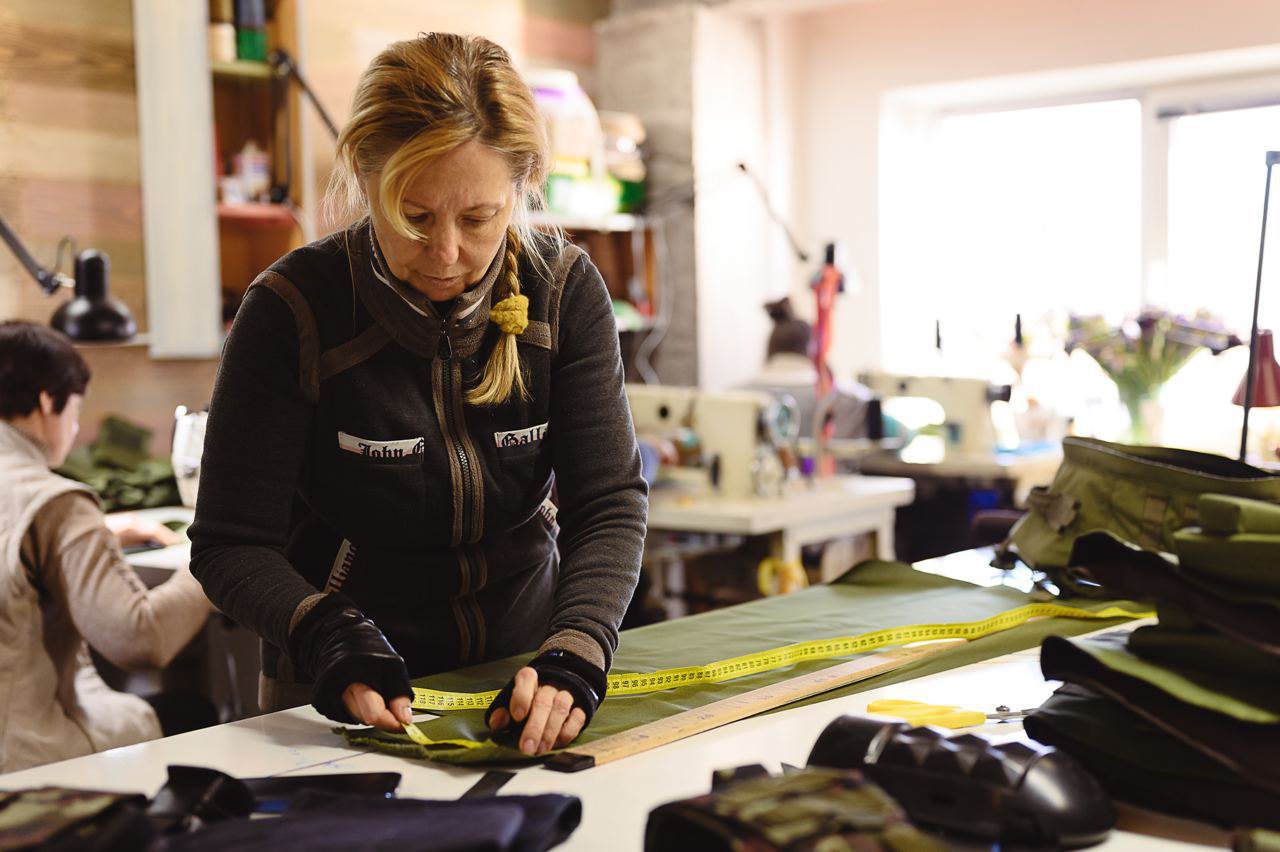
"We are currently working on further sequestration of budget expenditures"
S.K.: How are the state budget expenditures financed now? What has already been cut, and what do you plan to cut?
S.M.: By the government's decision, in agreement with the Supreme Commander-in-Chief, we sent about 60bn dollars for capital expenditures and development expenditures that were in the budget for the needs of the reserve fund. Since then, we have used it for financial security and defence.
We are currently working on further sequestration of budget expenditures. I can't tell you the details, but it is a forced, urgent decision under martial law. We are not funding things that are not related to protecting our citizens or military needs.
S.K.: How do you assess the overall macro-financial stability in these conditions?
S.M.: I find it very positive. It's not just the government's success. First of all, the National Bank deserves credit as its decisions in the first days of the war allowed to stabilize the financial system despite some speculative tendencies. Now we see that the situation has stabilized. We have reached the pre-war level of the exchange rate and the value of the hryvnya. Achieving this during martial law, so to speak, costs an awful lot.
There is no panic to withdrawing funds from accounts or ATMs, which shows that the Ukrainian citizens trust the banking system and believe in their national currency - the hryvnya. It is also one of the foundations of future victory. I am not exaggerating. That is a fact. Therefore, we must give credit to all those involved.
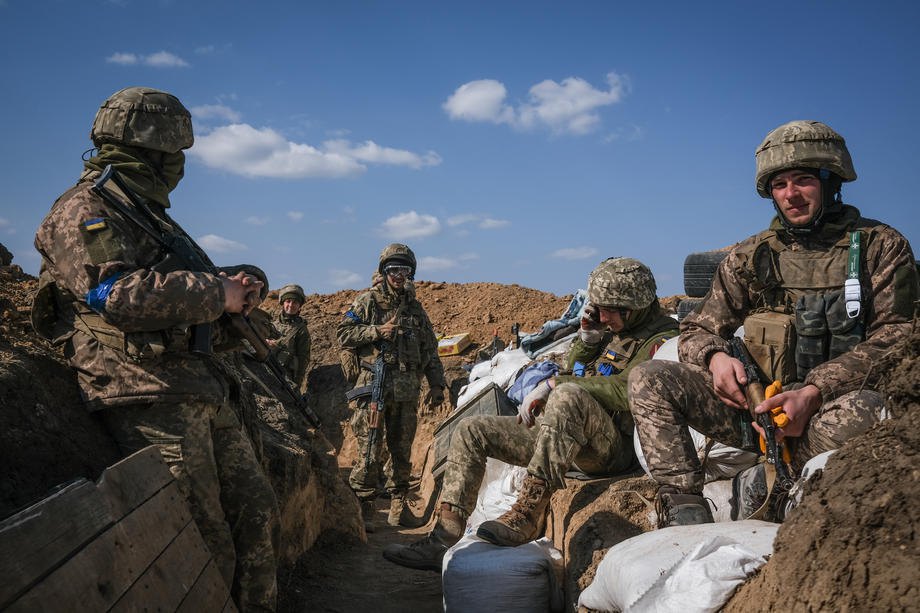
S.K.: Then let's talk about reconstruction and reparations. These mechanisms are pretty complex, lie in the field of international law, and were last used in the 1940s. According to my sources, the Ministry of Finance is already studying the topic and developing various scenarios of how it could be.
S.M.: Yes, it is not an easy question. It is a practice that was last used a long time ago. It is pretty bureaucratic from a legal point of view. Both reparations and compensation for losses from "frozen" assets require meticulousness. The lawyers have already joined the preparation process. They are actively looking for ways to collect seized property and assets related to the aggressor state and sanctioned businesses and citizens.
The process is not easy since it requires time and innovative solutions.
In addition, while the United States has established practices and procedures, the EU and we are looking for ways to ensure those and the institutions that need to be involved.
S.K.: Is there a single unit that deals with this? How does it happen? Who is in charge?
S.M.: The main driver of this process is the President of Ukraine. He is constantly raising this issue on the political level. Dmytro Kuleba, the Minister of Foreign Affairs, is also involved. Then the Ministries of Finance and Justice, the Office of the Prosecutor General, ARMA [National Agency of Ukraine for finding, tracing and managing assets derived from corruption and other crimes - LB.ua] and others. It is a whole pool that works on compensation for losses to the Ukrainian state, businesses, and citizens.
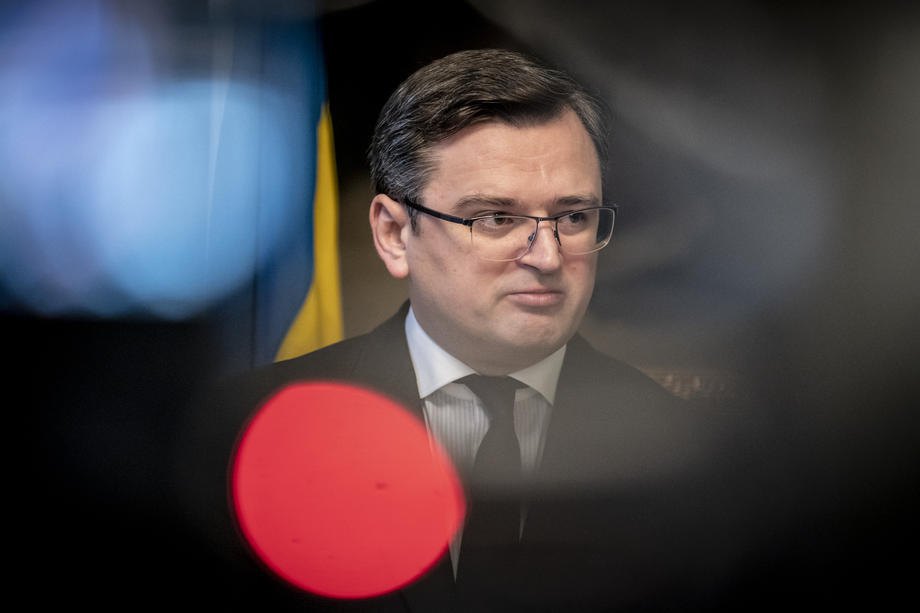
Every day we understand who is responsible for what in this process better and which direction we should move towards.
At the government level the coordinator is the Minister of Foreign Affairs, Dmytro Kuleba.
S.K.: Can you simply and briefly explain what the script should be like? Obviously, we must start with the losses assessment. And then? How long can the assessment last, because it is clear that not a month or two?
S.M.: Damage assessment is already underway, not only at the state level. The government has created mechanisms so that citizens can declare the lost property. Everything is being recorded. Crimes against humanity and mass murders are being recorded. It is also a part of the evidence base since the matter is not just about material damage.
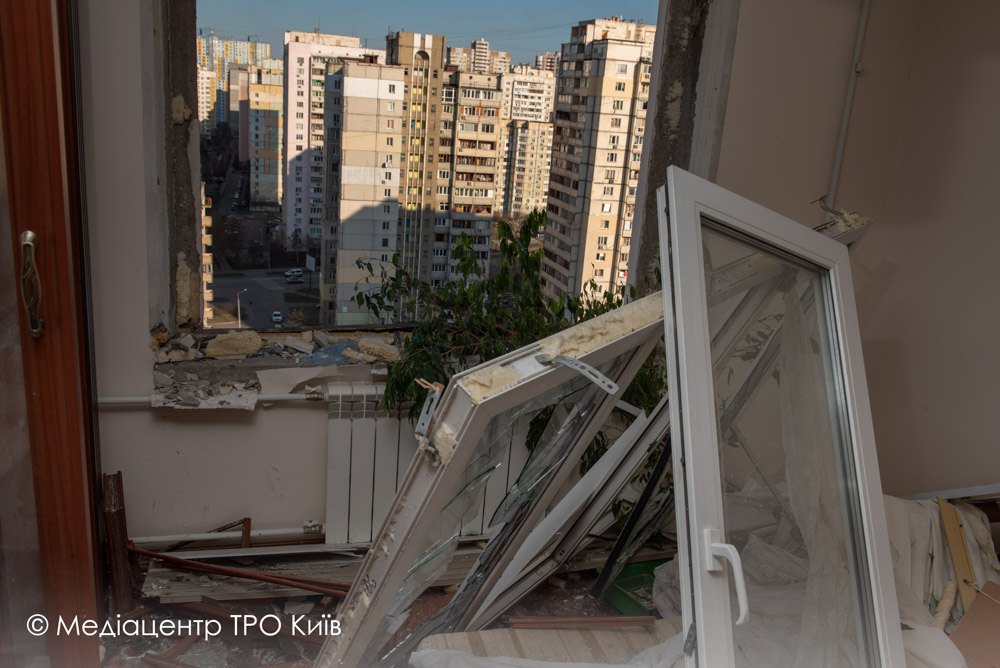
There is more, Ukraine has won cases at the UN court. The evidence base enables us to form separate lawsuits. In particular, regarding our field, when a bank loses its branch, it can record it and formulate court claims. At the same time, these claims will be included into the general claims against Russia.
Unfortunately, there is no court where a state can sue a state. Citizens and businesses have such an opportunity, but not states. Yet.
Therefore, we begin with gathering of information. Then we contact those countries where the property of the aggressor state was found.
Different lawyer teams with international experience in private and business lawsuits are working on it. Like the lawyers who were dealing with the case of Yanukovych borrowing three bn dollars.
S.K.: It lasts on for almost ten years… What about the frozen assets of the Central Bank of the Russian Federation. Is it possible to get them for Ukraine, let's say, in a year?
S.M.: This issue is not only legal but also political. Of course, we would like it to be fast and efficient. It is possible and needs some work done. Time will tell.
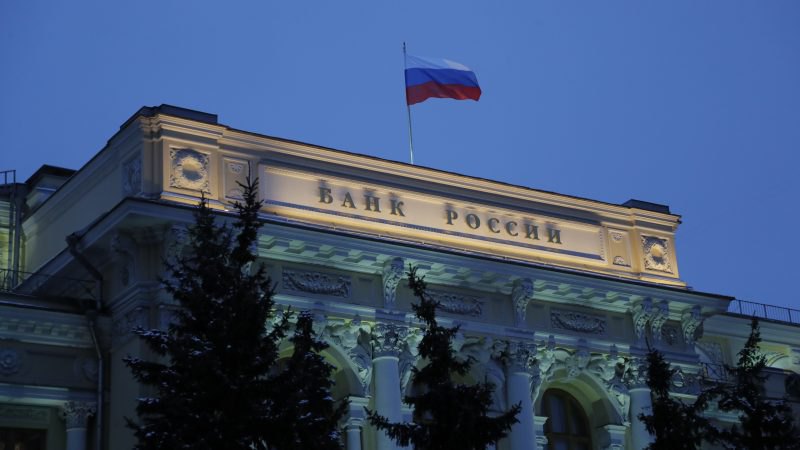
S.K.: You said that estimating the losses of the citizens is another story. What should a person do to record the damage caused to them by this war?
S.M.: The "Diya" application provides an opportunity to capture the fact that this has happened. Obviously, it is close to impossible to check the causes and nature of the damage in some cases right away. Next, one needs to gather information about what was lost. For this purpose, housing inspection reports are suitable; you can also document the damage yourself or with your neighbours' help. You can collect receipts for what was there before and after. The photos of the property before and after could be used. Of course, you should address the law enforcement agencies to record these facts correctly.
